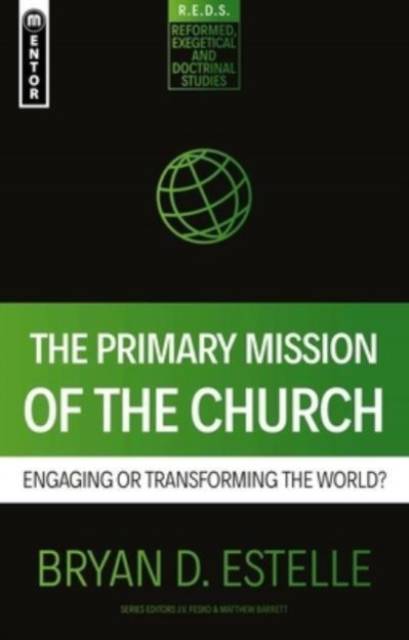
- Afhalen na 1 uur in een winkel met voorraad
- Gratis thuislevering in België vanaf € 30
- Ruim aanbod met 7 miljoen producten
- Afhalen na 1 uur in een winkel met voorraad
- Gratis thuislevering in België vanaf € 30
- Ruim aanbod met 7 miljoen producten
Omschrijving
This book argues for the separation of the church and the state. Additionally, Estelle claims that the historically reformed position is that Christ is ruler of all; however, he manifests his rule in different ways. These basic categories, i.e., that God rules the church as a redeemer (a spiritual kingdom) and rules the state and all other social institutions (the civil kingdom) as creator and sustainer, has been widely held by Reformed thinkers for centuries until the modern period. Estelle claims that without this bedrock truth, any attempt to describe the primary mission of the church will collapse.
This book has four parts. Part one gives the biblical basis for the primary mission of the Church. Part two of this book explores what the primary mission of the church is not. Part three of this book pivots toward a positive definition of what the primary mission of the Church is. Part four is more practical. In the final three chapters (part four) of the book, the discussion turns to several areas where the Scripture's teaching about ecclesiology, specifically on the primary mission of the Church. The book now assumes a practical import for her practice: the nature and limitations of Church power, the mission of the Church and politics and education. Finally, the book concludes with the famous biblical passage in which Paul addresses Athenian citizens on the Aeropagus. This sublime sermon exemplifies Paul's exquisite evangelism and ably pictures and embodies the positive principles in this book on the primary mission of the Church. Throughout Estelle argues that the mission of the corporate church is spiritual, which means that he describes those things that are properly of and properly belonging to the church.
Specificaties
Betrokkenen
- Auteur(s):
- Uitgeverij:
Inhoud
- Aantal bladzijden:
- 448
- Taal:
- Engels
- Reeks:
Eigenschappen
- Productcode (EAN):
- 9781527107762
- Verschijningsdatum:
- 14/01/2022
- Uitvoering:
- Paperback
- Formaat:
- Trade paperback (VS)
- Afmetingen:
- 137 mm x 213 mm
- Gewicht:
- 589 g

Alleen bij Standaard Boekhandel
Beoordelingen
We publiceren alleen reviews die voldoen aan de voorwaarden voor reviews. Bekijk onze voorwaarden voor reviews.








